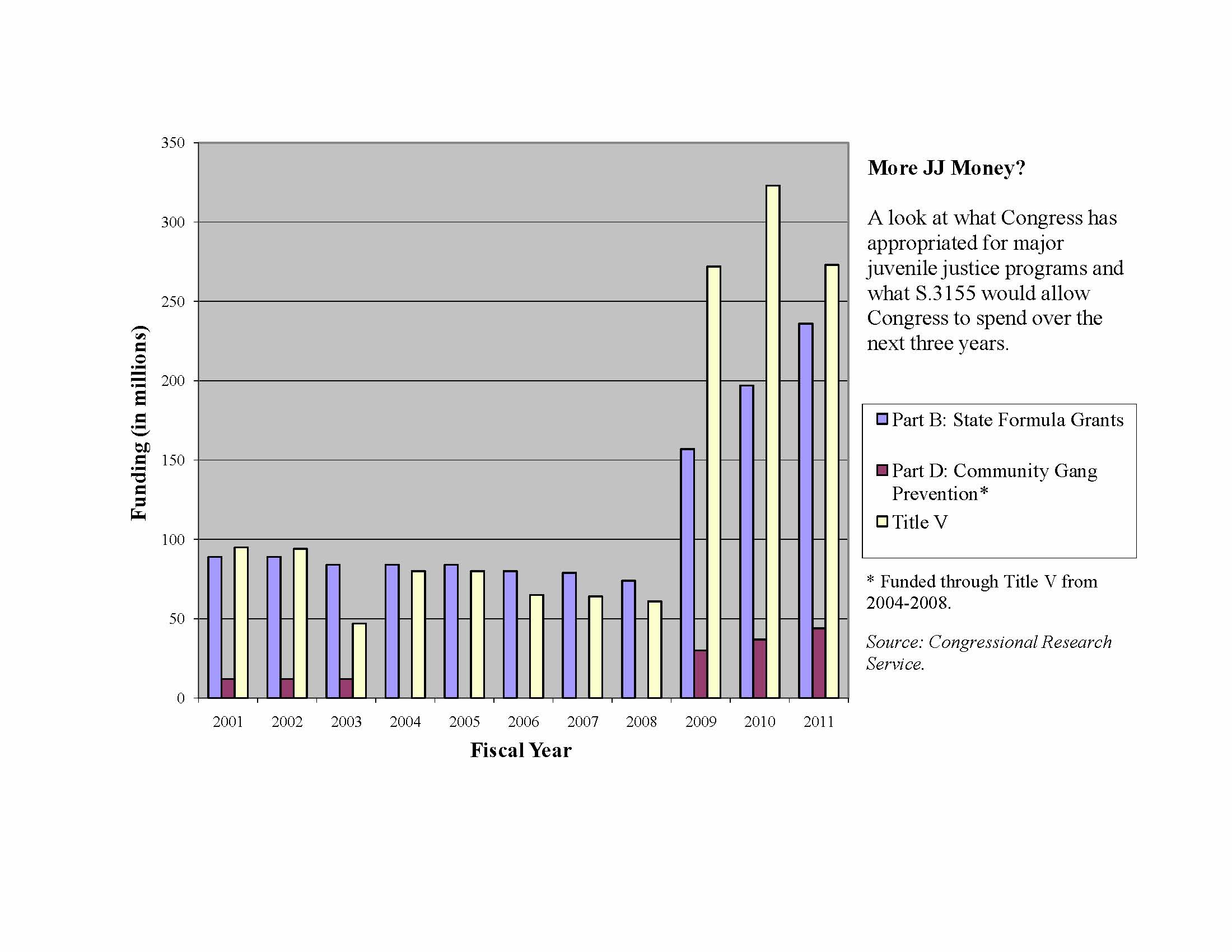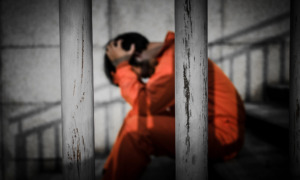A Senate bill introduced in late June offers no promises, but could dramatically increase funding for juvenile justice and allow more of the money to be spent for mental health and substance abuse services.
 |
|
Click on the graph above |
S. 3155, introduced by Sens. Patrick Leahy (D-Vt.), Arlen Specter (R-Pa.) and Herb Kohl (D-Wis.), would reauthorize the Juvenile Justice and Delinquency Prevention Act and could increase spending at the Office of Juvenile Justice and Delinquency Prevention by more than $200 million in fiscal 2009.
"It’s a strong bill. It moves us in the right direction," said Tara Andrews, deputy director for policy and programs for the Coalition for Juvenile Justice, a Washington-based nonprofit.
Among the changes proposed in the bill:
* A 400 percent increase in Title V spending on delinquency prevention, to $272 million in fiscal 2009 and to $323 million in fiscal 2010. Title V was appropriated $61 million in fiscal 2008, according to the Senate Judiciary Committee. Juvenile mentoring, which grew from $10 million in fiscal 2007 to $70 million in fiscal 2008, would be folded into Title V programs.
* Creation of a new incentive grant program that would provide $60 million each year for spending on evidence-based programs that address mental health, substance abuse or work force training.
* $157 million in state formula grants for fiscal 2009, $83.4 million more than in fiscal 2008. This could reach $236.1 million by fiscal 2011.
All of these are authorizations. Any part of the bill could receive appropriations – actual spending – at a far lower amount. But Andrews said the inclusion of proposed spending amounts is an improvement over current juvenile justice authorizations, all of which vaguely allow for "such sums as necessary."
Advocates say the prospects for success are questionable. Many doubt that the House will be able to introduce and pass a reauthorization bill during this legislative session because of the November elections. That would mean the Senate bill, which is also no sure thing to pass this session, would have to wait until next year – and a new Congress – for a companion bill from the House.
Some juvenile justice advocates suggest that wouldn’t be so bad, because a new president would be in office by the time a reconciled bill was sent to the White House.
For two consecutive budgets, President Bush has proposed rolling all juvenile justice money into a block grant. When J. Robert Flores, director of the Office of Juvenile Justice and Delinquency Prevention, testified in December at a Senate Judiciary Committee hearing on the reauthorization of the act, he did not once say he supported the reauthorization, drawing criticism from juvenile justice advocates.





























